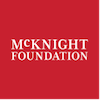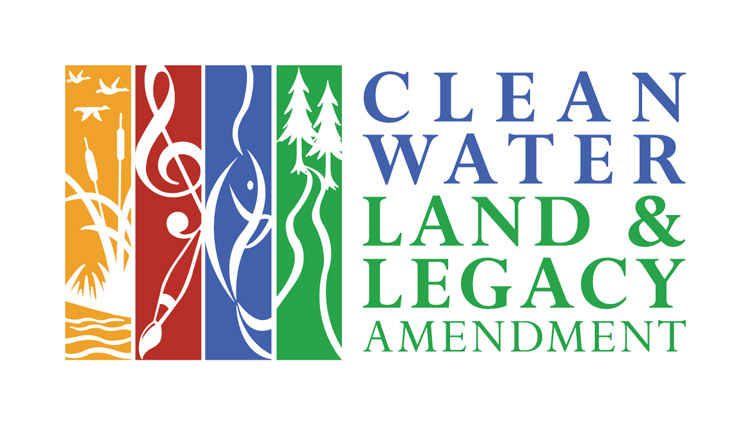In 2008, Minnesotan voters approved the Arts and Cultural Heritage Amendment to pay for improvements in clean water, environment and natural resources, outdoor heritage, parks and trails, and arts and cultural heritage. Public broadcasters, including Minnesota Public Television Association, Minnesota Public Radio and AMPERS, have received new funding.
The stories, shows and documentaries produced by AMPERS stations with this funding are featured on this website. There are hundreds of hours of great listening here — from the string sounds of Peter Ostroushko to an Ojibwe language show to the history of R&B in Minnesota.
AMPERS receives funding from Minnesota’s Arts and Cultural Heritage Fund (also known as the Legacy Fund). Below you will find a description of the projects that AMPERS is producing in Fiscal Year 2021 with the Arts and Cultural Heritage Funding:
Bearing Witness with Anthony and Georgia: connects the dots from past and present experiences and racial patterns in America, and hosts Anthony Galloway and Georgia Fort connect with community members and experts from many different experiences, people who themselves are trying to make sense of this moment. Together, we will process what is happening, engage with folks on the ground, and provide reflections and historical context to the events unfolding in this season of racial upheaval and change. By capturing and sharing the stories of the Floyd trials in the context of the officer-involved deaths of Jamar Clark and Philando Castille, we have the unique opportunity to showcase narratives from our state’s history that have been absent or marginalized, by allowing BIPOC on-air hosts and guests to share the information through their eyes and perspective. Having this additional knowledge and information, Minnesotans will be better prepared to make informed decisions for the future because they will be able to draw on information that many Minnesotans didn’t have previously because many BIPOC voices and stories have been absent or marginalized.
Counter Stories: gives representatives from Minnesota’s Latinx, African American, Native American, and Hmong communities the opportunity to come together to discuss race, identity, social justice, and culture, in a region grappling with demographic change. The group will produce 58-minute shows that the radio stations can air as one-hour or two half-hour shows. The shows will also be made available as podcasts.
MN90: Minnesota History in 90 Seconds will deliver Minnesota history statewide in a fun, entertaining and informative manner. It will make more Minnesotans aware of the way history impacted their lives helping them to make more informed decisions in the future. AMPERS will produce and distribute sixty 90-second segments each year.
Minnesota Native News: a five-minute weekly segment will look at social, economic, cultural, health issues, and more facing Minnesota’s Native American communities. It will be produced in such a way that it will be relevant to Native American as well as non-Native Americans living in Minnesota
Native Lights Podcasts: in these 20-to-60-minute podcasts, the Minnesota Native News producing team brings out some of the Native narratives, missing from the typical media landscape. By focusing on real people and their real stories as they tell them, Native Lights Podcast shines the light on Indigenous voices expressing their own experiences, touching on a wide range of issues and perspectives. You will hear from more than a dozen Native American people living in Minnesota, sharing first-hand stories and experiences covering a wide range of cultural and historical topics. The Native Lights Podcast is hosted by Leah Lemm and Cole Premo, siblings, who are both members of the Mille Lacs Band of Ojibwe, in addition to being part of the Minnesota Native News producing team.
Racial Reckoning: Ground Zero Documentary: will include a 60-minute radio documentary (or two 30-minute documentaries), two podcasts, as well as a video chronicling this historic moment in Minnesota as our communities grapple with unfolding events in this season of racial upheaval and change, during the police trials for the death of George Floyd. The documentaries will follow members of a BIPOC reporting team, covering stories from people within Minnesota’s diverse communities. Through their eyes, the documentaries will examine and confront many complex and traumatic historical issues regarding our institutions and legal system, as the tense situation unfolds in real-time, and as the world watches. Sharing the information through the eyes of BIPOC will better inform Minnesotans about our state’s history and will help them to make more informed decisions in the future because they will be able to draw on information that many Minnesotans didn’t have previously because many BIPOC voices and stories have been absent or marginalized.
Veterans’ Voices: Honoring Those Who Served in the 20th Century: is inspired in response to Minnesotans who have said they want to hear more stories from the Veterans who have been featured in our Veterans’ Voices projects. In these podcast episodes, we remember and honor the stories and memories of Minnesota Veterans of War during the 20th century. The goal is to give a deeper understanding of the character, values, and spirit of the Minnesota men and women who served their country during World War II, the Korean War, and the Vietnam War. Throughout this special series, listeners will hear dozens of stories that explore the knowledge, experience, and leadership of Minnesota Vets, from their own perspectiv.es and in their own voices.
Veterans’ Voices: Korea: these thirty 2-minute segments featuring Minnesota’s Korean Veterans will also be used as podcasts for use in Minnesota’s classrooms and for Minnesotans to listen to on-demand.
Educational Outreach & Teacher Resources: continuing in taking several steps to make it easier for teachers to access existing and new artistic, historical and cultural programs. The website will be enhanced to users to stop, restart, fast forward, and rewind audio. An educational consultant will create 2-to-3 sample lesson plans that will be shared on the website to encourage other teachers to share lesson plans they have created using the Legacy content. And, that same teaching consultant will work to inform teachers across the state about the free resources we have available on the site.
AMPERS digital archive, website & social media: to comply with Minnesota Statute 129d.19 AMPERS must archive all Arts & Cultural Heritage programming produced by AMPERS and its member stations, continue to maintain an infrastructure to make the programs available to all non-commercial radio stations eligible for state grants, and make these programs available online for all Minnesotans now and in the future.
To learn more about AMPERS Arts & Cultural Heritage programs, contact Joel Glaser at jglaser@ampers.org
Annual Legislative Reports
AMPERS Legislative Report FY 2024 (PDF)
AMPERS Legislative Report FY 2023 (PDF)
AMPERS Legislative Report FY 2022 (PDF)
AMPERS Legislative Report FY 2021 (PDF)
AMPERS Legislative Report FY 2020 (PDF)
AMPERS Legislative Report FY 2019 (PDF)
AMPERS Legislative Report FY 2018 (PDF)
AMPERS Legislative Report FY 2017 (PDF)
AMPERS Legislative Report FY 2016 (PDF)
AMPERS Legislative Report FY 2015 (PDF)
AMPERS Legislative Report FY 2014 (PDF)
AMPERS Legislative Report FY 2013 (PDF)
AMPERS Legislative Report FY 2012 (PDF)
AMPERS Legislative Report FY 2011 (PDF)
AMPERS Legislative Report FY 2010 (PDF)
AMPERSLegislative Report FY 2009 (PDF)

